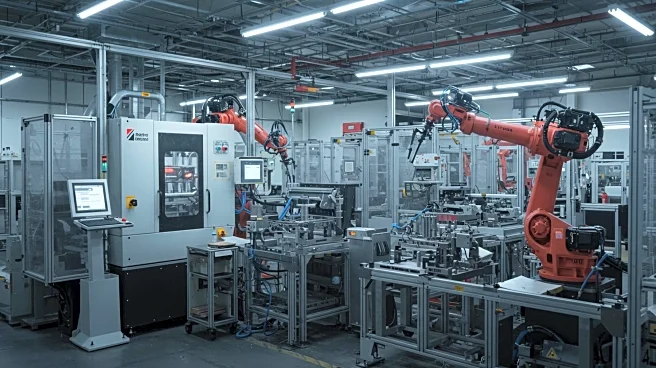What's Happening?
GE Appliances has announced a significant $3 billion investment aimed at expanding its U.S. operations by relocating production from China and Mexico to various states across the country. This move is part of the company's strategy to manufacture closer to its customer base, leveraging lean manufacturing and automation. The investment will enhance production capabilities in Kentucky, Georgia, Alabama, Tennessee, and South Carolina, adding over 1,000 jobs and modernizing existing plants. The shift includes relocating the production of refrigerators, gas ranges, and water heaters, with plans to double output and employment at the Camden, South Carolina plant.
Why It's Important?
This strategic shift by GE Appliances underscores a broader trend of reshoring manufacturing to the United States, influenced by tariffs imposed by President Trump on imports from China. The move is expected to bolster the U.S. manufacturing sector, creating jobs and stimulating local economies in the states involved. By investing in domestic production, GE Appliances aims to reduce dependency on foreign manufacturing, potentially leading to more stable supply chains and increased economic contributions. The initiative reflects a growing emphasis on U.S.-based manufacturing as a competitive advantage.
What's Next?
GE Appliances plans to implement the first phase of its investment across five Southern states, focusing on ramping up production and workforce training. The company is partnering with educational institutions to ensure a skilled workforce is available to support its manufacturing renaissance. As the plan unfolds, GE Appliances will continue to invest in its U.S. plants, with a total of $6.5 billion invested since 2016. The success of this initiative may influence other companies to consider similar reshoring strategies, potentially reshaping the U.S. manufacturing landscape.
Beyond the Headlines
The decision by GE Appliances to shift production domestically may have long-term implications for global supply chains, as companies reassess the benefits of local versus international manufacturing. This move could also impact trade relations, as increased U.S. production may reduce import volumes from countries like China and Mexico. Additionally, the focus on automation and lean manufacturing highlights the evolving nature of industrial operations, where efficiency and proximity to markets are becoming key competitive factors.









